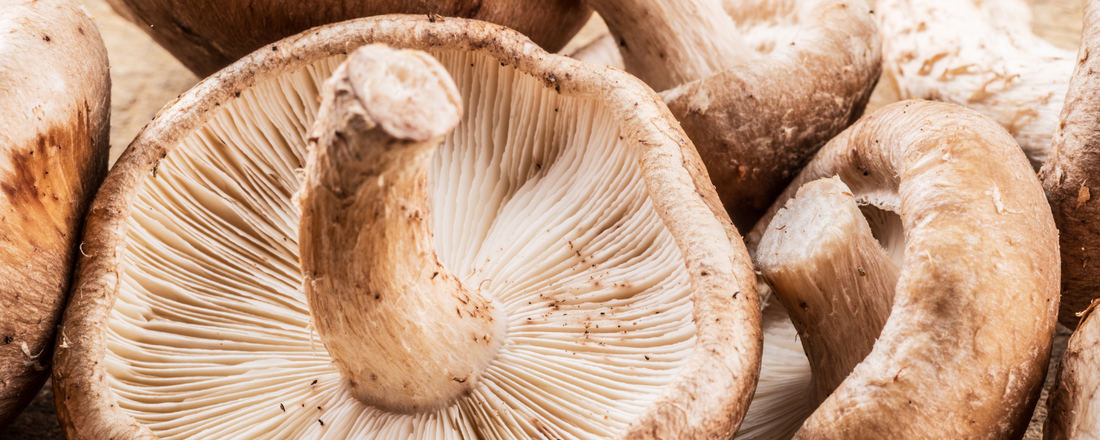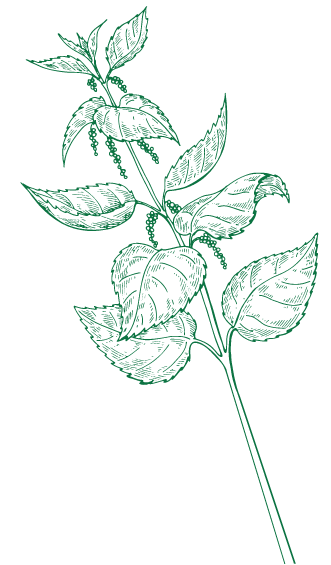Fiber is an important part of a balanced and healthy diet for several reasons. In this blog article, we explain to you what fibers are, how to get enough fiber and why variety in as many different plant fibers as possible is important.

Table of contents
- What are fibers?
- What types of fibers are there?
- What health benefits does fiber offer?
- Why is variation important?
- How do you get enough fiber?
What are fibers?
Fiber or dietary fiber is tiny particles (a form of carbohydrate) derived from the cell wall of plants. Thus, they are found in plant products, such as vegetables, fruits, nuts, seeds, legumes and whole grain cereals. Animal products do not contain fiber. Our small intestine cannot digest fiber, so it ends up in the large intestine, where it is either disposed of further in an unaltered state or fermented by your intestinal bacteria. There are several types of fiber with different characteristics and different effects in your body. Most foods contain a mix of different types of fiber.
What types of fibers are there?
Insoluble fiber or nonfermentable fiber. These fibers are found in wheat bran and the skin of fruit, for example. They are not broken down by bacteria in the colon and thus leave your body in unchanged form. These fibers do not provide energy and mainly increase the volume of your intestinal contents. Thus, they promote regular bowel movements. Thus, they are useful in preventing constipation and maintaining healthy bowel function. Whole grain products, nuts, seeds and vegetables are good sources of insoluble fiber.
Soluble fibers. Soluble fiber forms a kind of gel-like substance when in contact with moisture. Like, for example, beta-glucans in oats, pectin in fruits and inulin in vegetables. We find them a lot in vegetables, fruits, mushrooms and legumes. These fibers have multiple functions; for example, they help your digestion, lower your cholesterol levels, stabilize your blood sugar and promote healthy intestinal flora.
Even though they are not exactly the same, there is a large overlap between soluble and so-called fermentable fibers. Not all soluble fibers are fully fermentable, but almost all of them provide a fermentation source for your gut bacteria. These include fibers such as fructo-oligosaccharides (FOS), galacto-oligosaccharides (GOS) and resistant starches. The process of fermentation in your colon produces beneficial substances such as the short-chain fatty acids (SCFAs) acetate, propionate and butyrate. Fermentable fiber also provides nutrition - prebiotics - for your gut bacteria, ensuring growth and diversity of beneficial bacteria in the gut flora, strengthening your immune system and thus providing energy for the gut cells.
What health benefits does fiber offer?
We already saw a number of health benefits come along from the intake of sufficient fiber, such as good digestion and regular bowel movements. Fiber is also important for proper weight management. Fiber-rich foods provide a sense of satiety and thus help control your appetite. Soluble fiber also reduces the absorption of cholesterol from food and helps remove excess cholesterol from your body. Fiber, especially soluble fiber, slows the breakdown and absorption of sugars, thus slowing the rise in blood sugar levels after a meal. This helps maintain stable blood sugar levels. And as we also saw above, fiber acts as food for the good bacteria in your intestines, contributing to healthy bowel function.
Why is variation important?
Different high-fiber foods contain unique combinations of nutrients, such as vitamins, minerals, antioxidants and phytochemicals. By eating a variety of high-fiber foods, you get a wide range of nutrients that are important for your health. Moreover, as we wrote, different fibers have different properties. The richer the supply of fiber, the greater the variety of active contributors in your body and the more varied the nutrition for your gut bacteria. Bacteria in your gut that don't get nutrition decrease in number and may even disappear from your intestinal flora. So the more varied your high-fiber diet is, the greater the variety of benign gut bacteria and the stronger generally your microbiome is. And we know, "if you take good care of your gut, your microbiome will take good care of you.
How do you get enough fiber?
The recommended daily amount of fiber for a woman is at least 25-35 grams and for a man 30-40 grams. Preferably a little more. However, the average Dutch woman eats less than 20 grams of fiber per day. Men eat almost 23 grams of fiber per day. So 90% of people get too little fiber. If you want to get the desired daily amount, you have to make an effort. We give you some tips to increase your fiber intake:
- Streef naar 25 verschillende soorten plantaardige voedingsmiddelen per week.
- Choose high-fiber vegetables (at least 500 grams per day), such as broccoli, carrots, Brussels sprouts, artichokes, avocado, spinach, kale, beets, cauliflower, peppers, beans and lentils.
- Choose high-fiber fruits, such as raspberries, pears, apples, various types of berries, kiwis, oranges, mangoes, papayas, plums and bananas (green bananas contain the most fiber!). Eat the whole fruit (no fruit juices), with the peel whenever possible.
- Choose a variety of nuts, such as almonds, walnuts, hazelnuts and pecans and seeds, such as flaxseeds and chia seeds.
- Add limited legumes to your meals and vary them, such as different types of beans, lentils, aduki beans and chickpeas.
- Drink plenty of water when consuming high-fiber foods to allow the fiber to work effectively.
- Supplement your fiber with a high-quality multi-fiber complex, such as 7M Daily Fiber with as many as 10 fiber-rich ingredients.
In short, all about fiber! Enrich your breakfast with high-fiber products, replace your bread meal with a vegetable lunch and make vegetable products the main protagonist of your meal. That will make your tummy happy.







